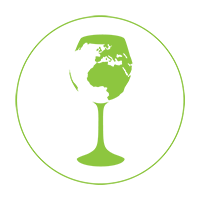SPEAKERS
2024 EDITION
For a Sustainable & Solidary Degrowth
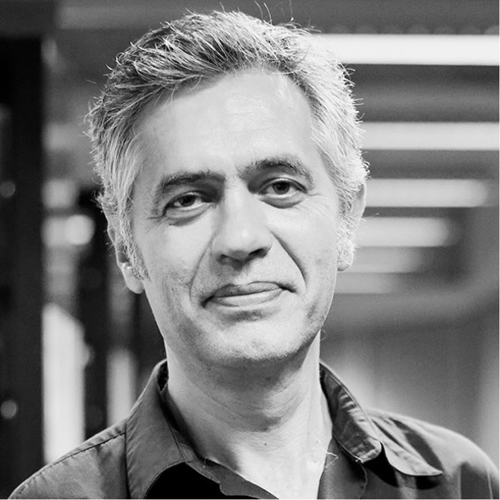
Yves-Marie Abraham is Professor at HEC Montreal where he teaches sociology and economics and conducts studies on degrowth. After co-signing the publications ‘Degrowth versus Sustainability: Discussions about what’s next for the World (2011) and ‘Where does Digging stop? Extractivism and Limits of Growth’ (2015), he published in 2019 a personal summary on degrowth ‘Healing from the Unlimited’. He is also in charge of the Social Innovation Management orientation in the Master’s department of HEC Montreal, where he offers a class on sustainable degrowth since 2013. Yves-Marie Abraham is also a member of the independent research group Polémos Degrowth.
Soil Health: Critical to Adapt to Climate Change
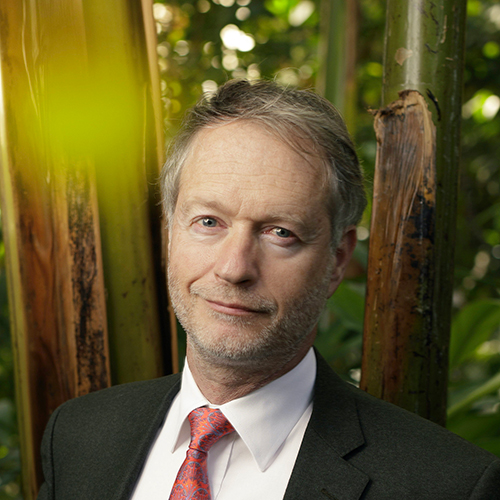
Marc-André Selosse is professor at Muséum national d’Histoire naturelle (Paris), and at Universities of Kunming (China) and Gdansk (Poland). His researches focus on the ecology and evolution of mycorrhizas, a major symbiosis between soil fungi and roots of most land plants. He also has a general interest for symbiosis and its evolution.
He was head of the French Botanical Society for ten years and is now president of the Fédération BioGée, member of the French Academy of Agriculture and of the Institut Universitaire de France. He (co-)edits four international scientific journals: New Phytologist, Ecology Letters, Symbiosis and Botany Letter. All his papers (more than 210 scientific papers and 250 outreach papers) are downloadable on his website. He published outreach books in French on microbiota (Jamais seul, 2017), tannins (Les goûts et les couleurs du monde, 2019) and soil (L’origine du Monde, 2021).
Adopting Regenerative Agriculture
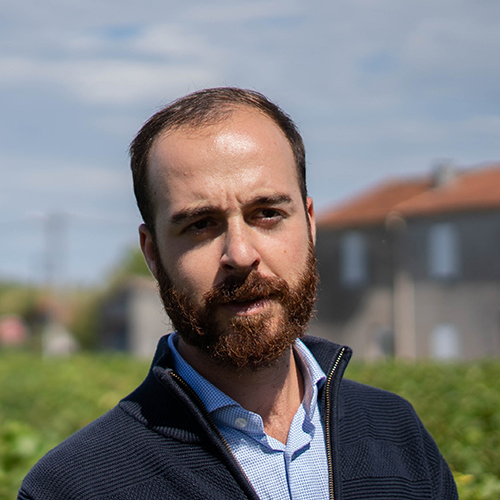
Born in the winegrowing region of Soave in northern Italy, 29-year-old Giacomo fell in love with the world of wine from a young age. He studied agricultural engineering and specialized in winegrowing and oenology in Bordeaux (2018) before beginning his career in 2019 at AdVini, covering sustainable development at all the group’s winegrowing estates in France.
Following extensive investments since Antoine Moueix acquired Château Patache d’Aux in 2016, Giacomo takes the helm of the estate’s 63 hectares to build on the Château’s excellent 2018, 2019 and 2020 vintages. Using his technical and agronomic expertise, Giacomo intends to take the quality of the estate’s wines, and its environmental prowess, to the next level.
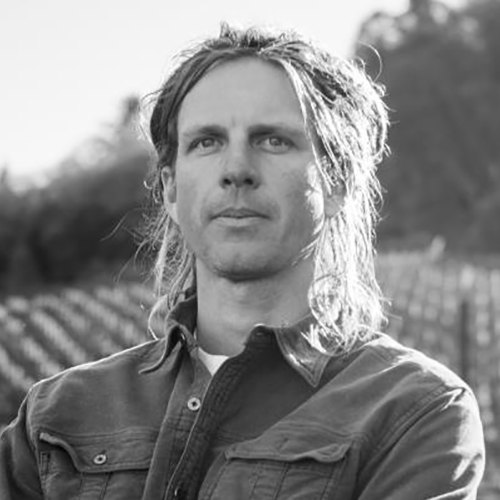
As the Director of Regenerative and Organic Development at Bonterra Organic Estates, Joseph Brinkley plays a pivotal role as a steward of regenerative organic farming and responsible business practices for the winery. Joseph's dedication to impact business practices and his extensive knowledge of regenerative organic agriculture, soil health, and stakeholder engagement have made him an instrumental figure in advancing responsible business practices in the wine industry at large.
With a degree in Economics, Joseph began his career at the Federal Reserve, where he quickly realized he would rather work with the land than in a corporate office. From there he pursued a degree in Horticulture and embarked on a new career in agriculture. He has previously held roles at Grgich Hills Estate, Spottswoode Estate, and Roederer Estate.
Joseph’s achievements include advocating for climate action and healthy soil legislation, receiving the Ceres BICEP Climate Smart Agriculture Groundbreaker Award in 2023, and being recognized as Wine Business Monthly's Wine Industry Leader of the Year in 2021. Joseph's leadership extends beyond the vineyards, as he currently serves as the Chair of the Organic Trade Association's Sustainability Council, further cementing his commitment to promoting regenerative farming practices and responsible business initiatives.
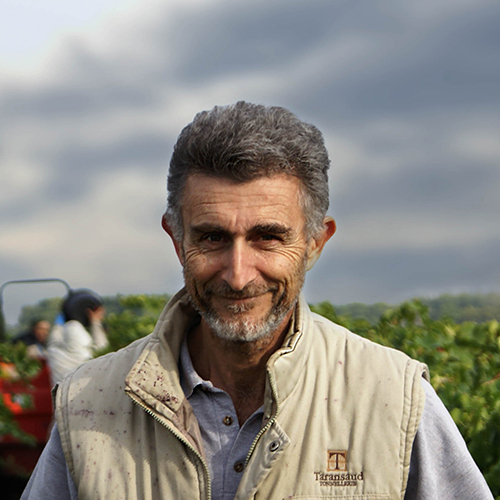
His inspiration comes from his terroir. After earning a degree in agronomy, Michel Gassier went to Washington, where he held the position of “wine attaché” at the French embassy. Driven by his passion for his American experience, he decided to work for a small New York wine importer before joining CVBG Dourthe Kressmann.
Gradually, he became aware of the potential of his homeland, and the idea that he could create wines that fully express their terroir became tangible. Upon returning to his family’s estate in 1993. Michel took on the responsibility of winemaking while his father continued to work the vineyards.
When is father retired in 1999 Michel took over the reins of the estate. Since then, he has passionately transformed the estate into a premium organic estate in the Rhône Valley. In 2022, he was joined by his daughter Isabel and together they continue the evolution with regenerative agriculture.
Fighting Fungal Diseases
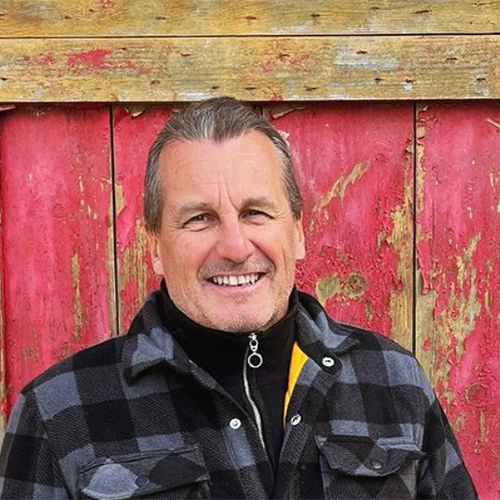
Born in Montpellier on the Mediterranean Coast, Olivier Sébé grew up with the sea. “As a kid, my mother would let me look at the waves for hours!”. As a teenager, he takes part in windsurfing competitions ; in 2015 he sails around half of the world with his family and often returns to Polynesia which he loves, to be at sea. This background is certainly reflected in his work at Domaine La Clausade.
In 2017, after a career as certified-accountant in real estate, Olivier Sébé buys a piece of land at Mauguio Carnon where he grew up. With his passion for the sea, which had been forbidding copper for 30 years, he wants to find a solution to produce organic wines without using copper or sulfur. The objective: preserve the soils, increase biodiversity and produce sustainable wines.
This reflection led him to plant strong wine varieties as of 2019: Soreli, Souvignier gris, Muscaris, Floréal, Artaban, Vidoc… Without chemical treatment, sulfur or copper and with less needs for water, these varieties are at the heart of Domaine La Clausade’s project on 18 hectares of land. The wines are certified Organic and Biodynamic. Domaine La Clausade takes part in the PIWI varieties movement. Beside their impact on the soils, these varieties require less energy and produce less CO2 due to the fabrication of crop protection products and their application on the vines.
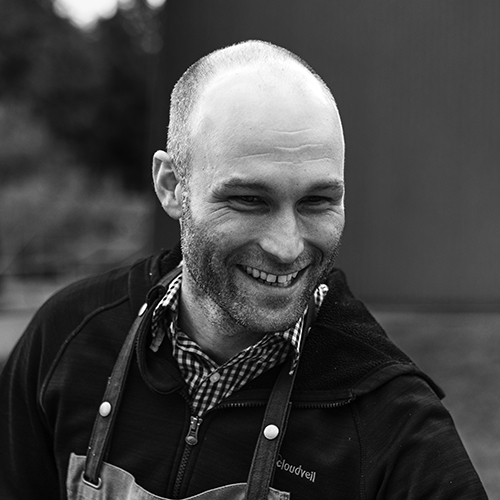
On the shores of the Yamaska river in Saint-Louis, Quebec, Matthieu and his partner Fannie together farm 3 hectares (7 acres) of organics vines at Domaine du Nival. Both in the winery and the vineyard, their work is light-handed to produce natural yet focused wines from Pinot noir, Gamaret, Vidal and Albariño. In the field, emphasis is put on preserving soil health and a thriving ecosystem while in the winery the wines are made without additions so as to preserve the true expression of terroir and vintage.
In addition to his work at Domaine du Nival, Matthieu has been involved for many years with the Conseil des vins du Québec where he strives to make the Quebec wine industry move forward in a more sustainable way.
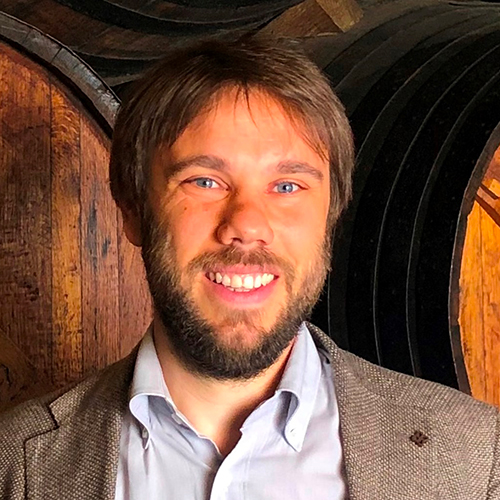
Fabrizio Battista earned his master degree in Viticulture and Oenology in 2009 at the University of Padua (Italy) with a thesis on vine gene expression using Microarray technology. In 2012 obtained a PhD in Viticulture and Oenology with a multidisciplinary study combining the effect of Terroir on grape morphology and wine quality.
Since 2009 and during his PhD worked at Research Centre for Viticulture of the Agriculture Research Council of Conegliano (CRA). During these six years he developed some research programme focused on different subject as grape post-harvest dehydration process, berries skin thickness, effect of different training system and different cultural practices on grape quality, root system, zoning study.
In 2015 he joined Lallemand where became part of viticulture application R&D team as Project Leader and Italy’s technical support.
Certifications: A Must to Communicate Sustainability to Consumers?
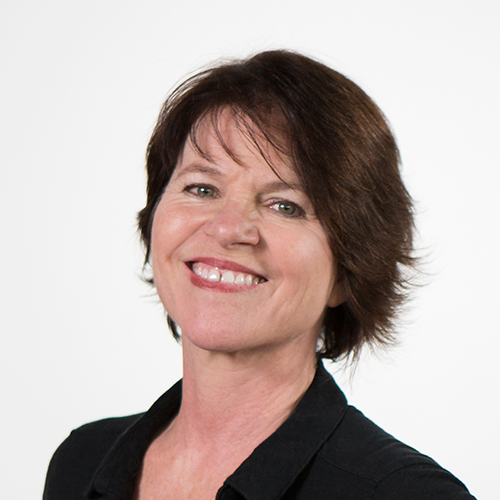
With a career that began as a sommelier in 1987 in the 35,000-bottle cellar of Pierce’s restaurant in the Finger Lakes region of New York, Gilian Handelman couldn’t resist the call of winemaking, moving into production in 1988 in Washington State for six harvests in three different wineries, Columbia Vineyards prominent among them. Handelman was hired in 1994 by Kendall-Jackson as Enologist, where she produced experimental wine, yeast and barrel trials and tracked the 1,500-plus lots of wine made by the winery each year. In 1996, she was tapped to create a comprehensive education program for the winery, where she developed training materials for KJ’s sales force as well as wine and food education and seminars for both trade and consumers.
In 2000, Paige Poulos Communications recruited Gilian as Director of Wine Communications where she developed PR and education plans for winery and industry clients. It was here that the diversity of her skillset was brought together, combining sensory evaluation, winemaking and culinary education with strategic business initiatives.
Gilian was hired by Wine & Spirits Magazine in 2002 as their Director of Marketing and Education she created their lauded “Top 100” event, developed the “Best New Sommelier” program, and taught scores of classes at culinary and hospitality schools around the United States.
Propelled by a strong desire to work once again in vineyards and cellars, she returned to Jackson Family Wines in 2008, where she currently directs enterprise education for the family’s 40 wineries around the globe.
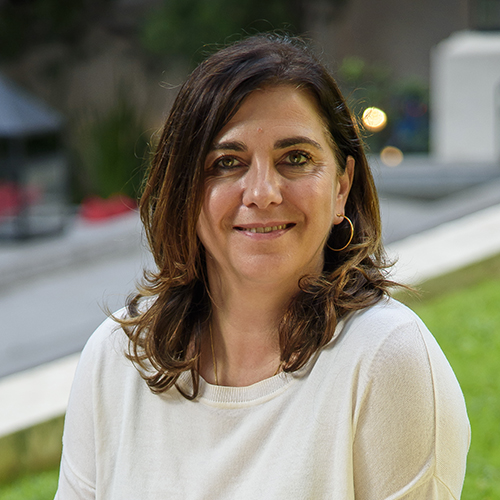
Anne Bousquet grew up in a winegrowing family in Southwest France. Breaking with three generations of winemaking tradition, Bousquet opted to pursue a bachelor’s and master’s degree in economics instead. A successful career as an economist specializing in the paper packaging industry ensued. Anne, her husband Labid Al Ameri accompanied by their daughter Eva moved from Brussels to tiny Tupungato, Mendoza, Argentina in 2009 to manage Domaine Bousquet, the winery they co-founded with her father Jean in the late 1990s.
In 25 years, Domaine Bousquet has morphed from a pioneer’s dream in virgin territory into a thriving concern with 190 full-time employees and wines sold in more than 60 countries. Domaine Bousquet today is the #1 organic and regenerative winery in Argentina. Anne and Labid are now based in Miami, to focus on developing their most important market, the U.S., and have set up their own import company. Today Anne splits her time between running Origin Organic Imports in Miami and Domaine Bousquet in the Uco Valley in Argentina.
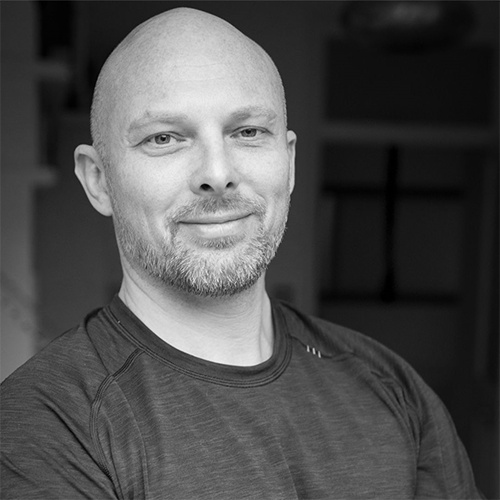
Barry combines 20 years’ experience in the core industry disciplines of winemaking and global wine buying with the prestigious Master of Wine (MW) qualification. Breadth of experience for wine producers and UK Retailers has developed a keen understanding of the UK market and consumer and the importance of sustainability.
Winemaking roles have taken him around the world from McLaren Vale in Australia to Languedoc in France, making wines for small, premium producers (Lurton, France) to large, multi-national wine companies (Accolade Wines, Australia) as well as retailers (Sainsburys & Morrisons and now Waitrose and John Lewis partnership), making, developing and selling recognisable global brands and customer focused wine ranges.
Barry has developed a specialist understanding in the area of bulk shipment also completing his MW dissertation on the topic. The enhanced sustainability of bulk shipment and in-market packing model has led to his continued professional development becoming an active advocate of sustainability more generally across the entire wine industry supply chain.
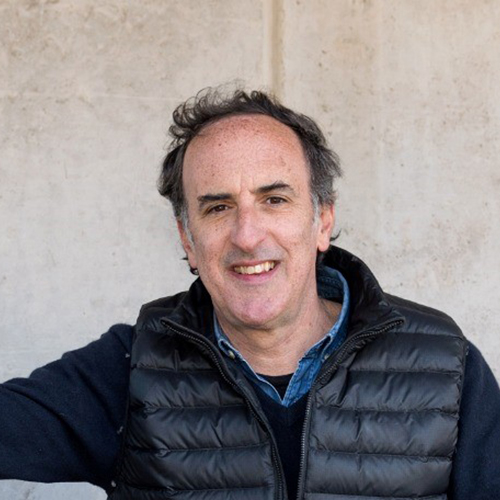
Agricultural Engineer, Viticulturist and Oenologist from Pontifica Universidad Catolica of Chile, he has developed an outstanding career in vineyards and wineries from France, United States, Australia, Argentina and Chile, among which are Chateau Margaux, Franciscan Estate, Rosemount Estate, Kaikén and Koyle , where today he is Technical Director. In 2018, he was highlighted by Decanter as one of the best winemakers in South America. In its article titled “Rising stars: winemakers to watch in Chile and Argentina”, written by Tim Atkin MW, it highlighted the work of this professional, who was selected amongst the 10 youngest winemakers who are transforming the wine scene in both countries.
Cristobal was one of the first winemakers in South America in adapting the Biodynamic approach to the viticulture of Koyle, at the foothill of the Andes range in a place called Los Lingues, Colchagua. In 2006, his father Alfonso Undurraga, who is the fifth generation of the oldest family in Chile related directly to the wine industry, founded Koyle. Koyle is an organic and biodynamic certified project since 2012, focused on the development and care for the origin and winemaking of world-class terroir.
Packaging and its Content: the Dilemmas
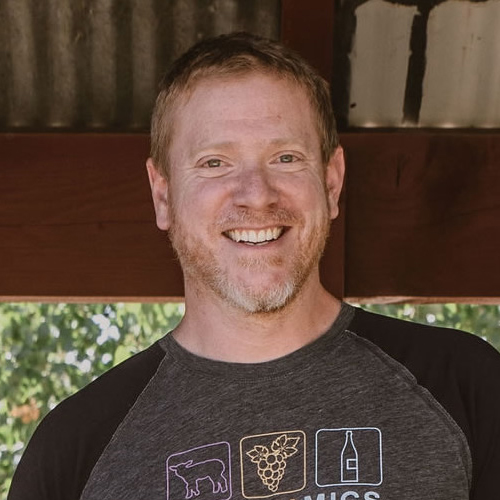
Jason Haas is the second-generation proprietor of Tablas Creek, serving in the dual roles of Partner and General Manager. In his two decades at the winery his family founded in partnership with the Perrins of Chateau de Beaucastel, Jason has overseen the business, winemaking, sales and marketing. Tablas Creek Vineyard, in the Paso Robles Adelaida District, is the first Regenerative Organic Certified™ winery in the world.
In addition to his work at Tablas Creek, Jason has led the boards of directors of both the Rhone Rangers and the Paso Robles Wine Country Alliance, and is a board member of Free the Grapes. His writing has been published in Wine Business Monthly, Wines & Vines, Decanter, Wine Industry Network and Wine Searcher. His photography has appeared in Wine Spectator, Forbes, the Washington Post, and Wine Enthusiast. He is principal author of the Tablas Creek blog, an eight-time finalist and two-time winner for the Wine Blog Award’s “Best Wine Blog”.
In recognition of his contributions to the Paso Robles wine community, he was voted by his peers 2015 Paso Robles Wine Country Wine Industry Person of the Year and 2017 San Luis Obispo County Wine Industry Person of the Year. In 2022 he was named a Food & Wine Magazine Drinks Innovator of the Year.
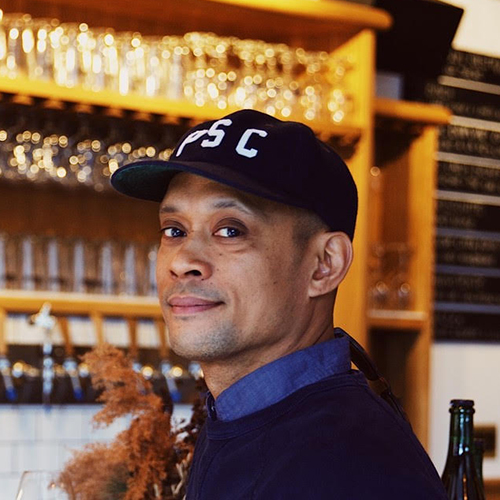
David acts as the senior strategic analyst at Oenopole. A lover of wines of both terroir and vintage, the former sommelier holds an MBA from HEC Montréal. Before joining Oenopole, he was a consultant in Ernst & Young's Climate Change and Sustainability team.
With a wealth of experience as a strategist and analyst in the food processing and consumer packaged goods sectors, he contributes to Oenopole’s mission: bring artisanal wines produced with respect for the environment available throughout the SAQ network, while effectively communicating the company's sustainable mission.
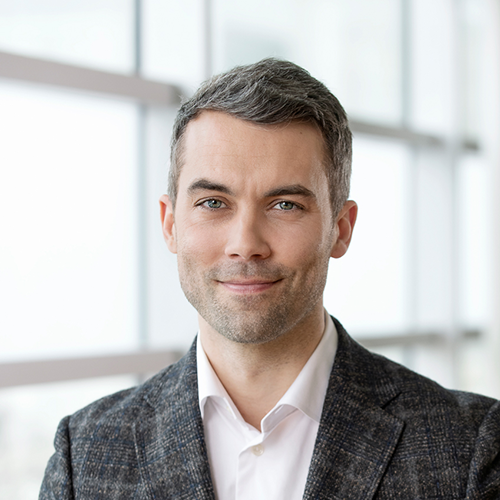
Christian has excellent strategic vision and over 20 years of retail experience in the wine and spirits industry. He completed a master's degree in Management and Sustainable Development at HEC Montréal after his environmental studies.
He now oversees the SAQ’s overall ESG plan, including the brand new sustainable development action plan. He collaborates in the implementation of several initiatives, such as the SAQ decarbonization plan, the modernization of the deposit system in Quebec as well as social impact projects. His various experiences and his participation in large-scale projects have allowed him to acquire transversal knowledge of the organization while establishing close collaborations with several players in the industry in which he operates.
Our journey to carbon neutrality: The New Zealand wine perspective
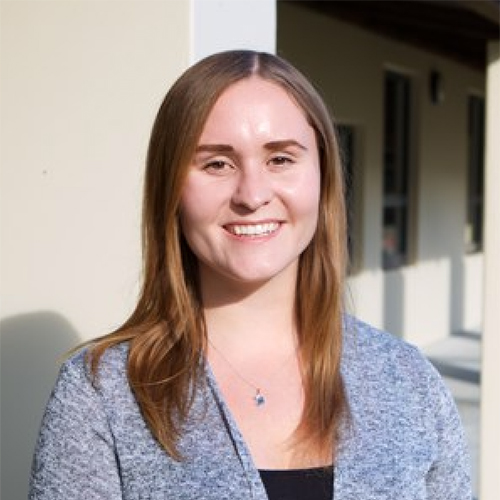
Meagan Littlejohn hails from Canada with a Masters degree from the University of Ottawa focussed on behaviour change, and a background in research and project management. She first joined the Sustainable Winegrowing NZ (SWNZ) team in May 2018 as the Systems Administrator and has been managing the daily operations of the SWNZ programme as Programme Manager since January 2020. Meagan is based in Blenheim in New Zealand’s largest winegrowing region, Marlborough.
The SWNZ programme began in 1995 and leads with way internationally with approximately 96% of all producing vineyard area in New Zealand SWNZ-certified. The programme is based on continuous improvement and alignment with standards and benchmarks, which ensures members meet best practice guidelines for sustainability in the vineyard and winery. Meagan is passionate about advancing the sustainability efforts and credentials of the New Zealand wine industry.
Varietal Innovation to Preserve Local Wine Identity in a Changing Climate
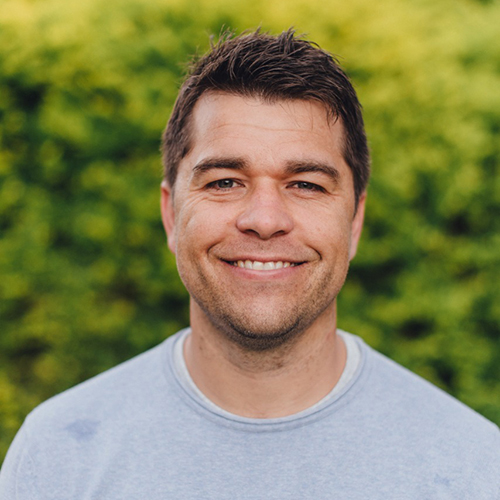
Originally from South Africa where he studied viticulture and oenology at the University of Stellenbosch, Etienne Neethling came to France in 2008 to complete his masters and doctoral studies.
He is today a lecturer-researcher at the Ecole Supérieure des Agricultures in Angers, developing research work on adapting the wine sector to climate change. He is the head of the Master of Science in Vine, Wine and Terroir Management and an OIV expert within the SUSTAIN group. His presentation will focus on sustaining local wine identity in an evolving global climate, where varietal innovation is a critical question in building the resilience of the wine sector.
Agroforestery: What’s All the Fuss About?
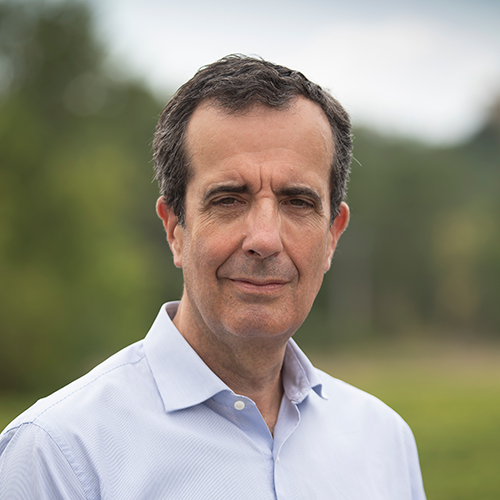
Pierre Philippe has been since 2005 Les Vignerons de Buzet Cooperative’s managing director , following an extensive career in the wine industry. Since his arrival, he has made sustainable development the driving force of the Cooperative's strategy, which is committed to economically viable winegrowing that respects both Man and Nature.
Les Vignerons de Buzet, a purpose-driven business, is known for the far-reaching environmentally friendly measures it has taken since 2005 (integrated viticulture, ISO 14001, AGRI CONFIANCE standard, IFS, HVE, payment for environmental services, etc.) and for adopting the ISO 26 000 standard on corporate social responsibility.
Pierre Philippe led the international commission for ISO 26030 and chairs the Coopération Agricole’s CSR committee in France.
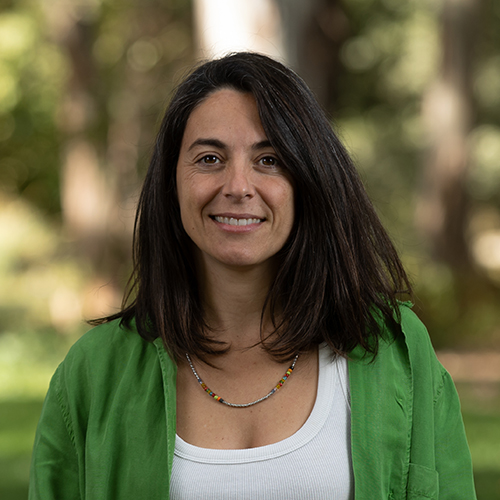
Noelia is of Spanish origin. She holds a degree in winemaking and viticulture from the Technical University of Valencia. She has traveled the world working at wineries in different countries, such as Spain, New Zealand, and Chile, where she arrived in 2009. Noelia has been fascinated since then by the potential of Chilean wines and decided to settle down in this country. And to deepen her knowledge, she studied for a master’s degree at the Universidad de Chile.
She began her adventure at Emiliana in 2011. After a successful career, she is currently the winemaker in charge of all the wines produced at the winery of Los Robles, our estate located in the Colchagua Valley and the heart of the winery’s organic project and the origin of recognized brands such as Gê –recently recognized as the best wine in Chile-, Coyam –a world-wide icon of organic agriculture-, and Signos de Origen and Salvaje –the winery’s first natural wines.
Sparkling Wine & Climate Change
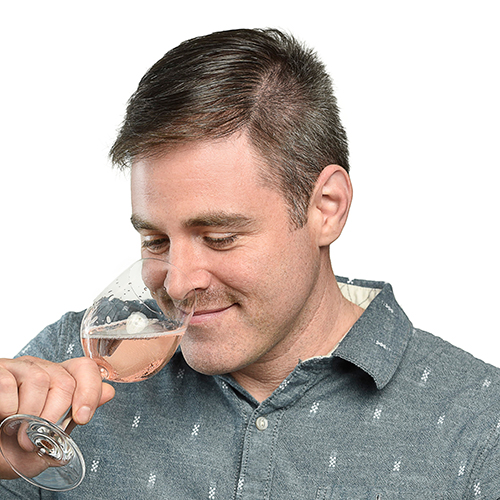
In 2008, Jean-Benoit joined the Benjamin Bridge winemaking team in time to release his first Canadian wine, Nova 7 by Benjamin Bridge. Since then he has crafted all of the winery’s classic method sparkling wines and its still wines, in consultation with Peter Gamble, the winery’s lead consultant, and the late Raphaël Brisbois, its sparkling wine specialist and former chef de cave of Piper-Heidseick.
Originally from Québec, Jean-Benoit began his winemaking apprenticeship at VOE (Vinedos Organicos Emiliana), a biodynamic vineyard/winery in Chile’s Colchagua Valley, which was created by one of Chile’s largest producers, Vina Santa Emilina, to produce exceptional wines. Having mostly worked in California, he made wine at Casa Barranca (2004-2008), the first certified organic winery in Santa Barbara County. In California, his winemaking efforts garnered accolades and standout reviews from Robert Parker and Steven Tanzer (90+). Since 2008, Jean-Benoit’s winemaking has elevated Benjamin Bridge’s wine programs to new heights with consistent 90-95+ scores and unanimous high praise from the nation’s leading wine critics along with growing international recognition.
Marc Picón was born in 1981 in Vilafranca del Penedès, a small village close to Barcelona in Spain. Since he was a child, he has been surrounded by the grapes and wine atmosphere. His mother, Lidia, was one of the first women winemakers in the region and transmitted all her knowledge and passion to her son.
After obtaining his degree in Economics at the Polytechnic University of Catalonia, he met a marketing wine Guru, called Michel Bourqui, who offered Marc the possibility of being part of a really special master degree; the OIV master degree in wine management. Marc travelled for 18 months around the world, just to visit the best wine regions on the earth. In total- 23 countries and more than 500 wineries.
After 15 days in Champagne, Marc decided to come back home for a week. It was during this week that he met the family Sumarroca. That day Marc invited his father for lunch, and he chose a Sumarroca Cava Nuria Claverol, one of the most interesting wines produced by Sumarroca. He was really impressed with the quality and style, and he started to talk about it. Just behind, one of the members of the family was listening to the comments Marc was saying about the wine. After some minutes, introduced himself as one of the owners and invited him to visit the winery. Eleven years later he still working at Sumarroca as the export manager.
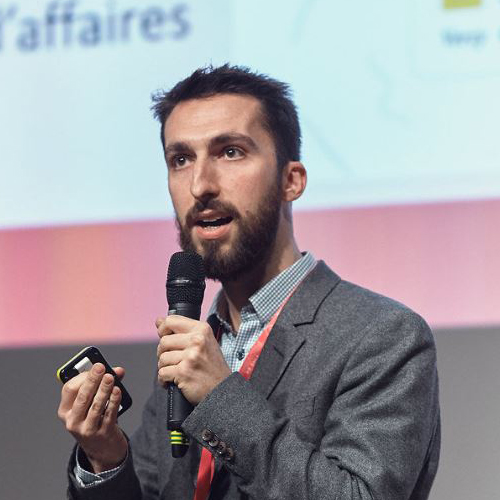
Pierre Naviaux is Director of the Sustainability Department of the Comité Champagne, which is the organization in charge of defending the collective interests of all Champagne wine makers and vineyards.
The Comité Champagne leads a sustainability management plan for the Champagny industry: 16,000 wine makers, 140 cooperatives and 400 Champagne vineyards. The objective of this plan is to invite all of these organizations towards a process of continuous improvement thanks to collective actions, experimentations, decision-making tools, sharing of good practices, technical and financial support, and the implementation of environmental certifications.
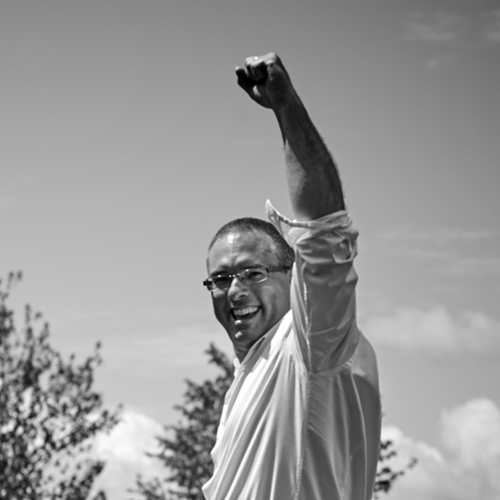
Marc is co-owner, vine grower and winemaker with Eve Rainville at Domaine Bergeville. He started making wine with one of his uncles in his teens and decided that it was his future. However, life being sometimes complicated he became an engineer first and travelled the world before coming back to the Eastern Township with Eve to establish a vineyard dedicated to producing sparkling wines called Le Domaine Bergeville. Marc is passionate about living and regenerative viticulture as well as all impacts his actions can make on all ecosystems. He will often “joke” that each an every one of his vines is one of his children.
Bulk & On-Site Bottling
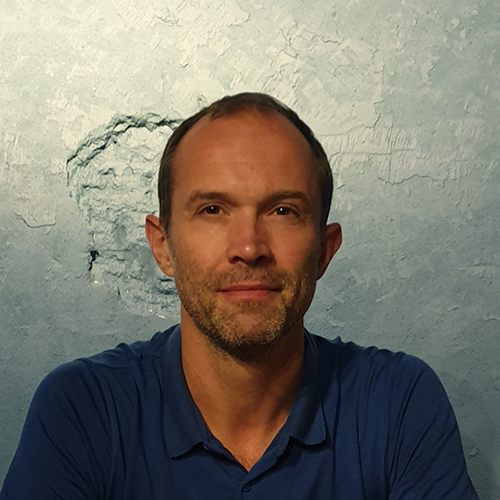
Ray O’Connor is a Master of Wine based in the U.K. He specialises in bulk transportation of wine and works continuously on improving the quality perception of wines through blending, range development and communication. For 10 years he was the Wine Director for Naked Wines responsible for discovering new wines and managing a rigorous quality control program.
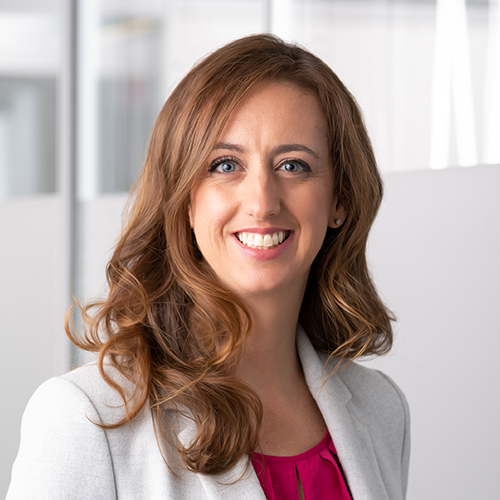
With climate change disturbing the world ecosystem more and more and with social inequities getting worse, companies must show their added value in the society and get more involved in their community.
As strategic leader and experienced manager, Marie-Hélène Lagacé leads the corporate responsibility strategy of the Société des Alcools du Québec (SAQ). She guides the organization to implement promising initiatives and play a positive role for Quebec in the alcoholic beverages industry. With her vision, she mobilized employees and business partners around objectives that are beneficial for the common good of Quebeckers and the environment.
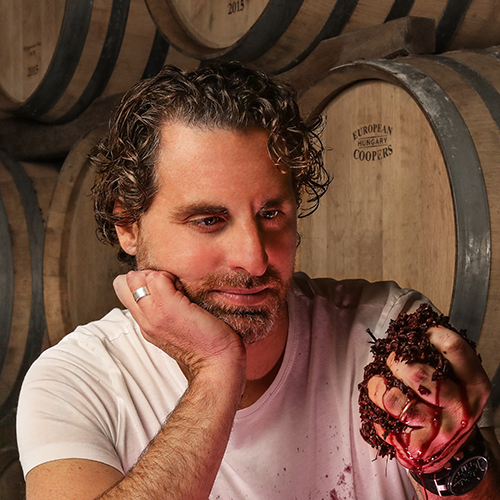
Federico Cerelli was born in Florence and grew up in Tuscany. He has worked for more than 20 years with prestigious Italian wineries including Antinori, Castello di Meleto, Mastroberandino, Castello di Gabbiano, Bindi Sergardi and Lavacchio, for which he supervised important winemaking projects. He specializes in Sangiovese and native varieties and advises different wineries in the most renowned Tuscan appellations.
Federico brought his extensive knowledge and passion to many winemakers. His continuous research for quality and innovation has been a great asset for them. His degree in Computer and Technology led him to use modern technology along with traditional winemaking techniques to craft the best wines. He is convinced that today’s technologies allows us to replicate traditional techniques with a maximum control and minimum cost. His deep knowledge and his experience on the sites give him the confidence to achieve quality, even in challenging harvests.
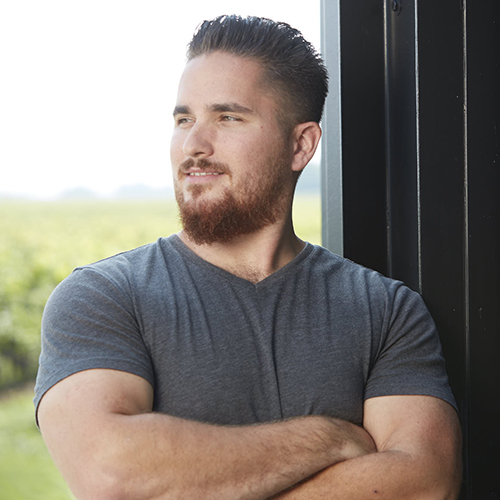
Dean has lived and worked his entire life in the Niagara Peninsula. He was raised in a wine family with vineyards and cellars as his childhood playground during harvests and holiday parties as his father worked in production at Brights Wines (one of Canada’s first wineries) for 41 years.
Dean’s wine career began in 2010 in the Stratus Tasting Room while he was studying for a Wine and Viticulture Diploma at Niagara College. The 2010 vintage marked his first harvest at Stratus and he was subsequently hired as Lab Technician while he finished his studies; ultimately graduating in 2011. Since that time, Dean has held all positions relative to winemaking including Vineyard Manager, Winemaking Supervisor and Assistant Winemaker. In January, 2022, he was duly promoted to Stratus Winemaker.
As a graduate of Niagara College, a top research College in Canada, Dean has made sustainability, research & development and innovation with respect to tradition, the forefront of his winemaking focus.
He has always believed in the importance of knowledge being passed along and has benefited greatly from the mentorship of Stratus Founding Winemaker, Jean-Laurent Groux, along with the entire Stratus Management team in winemaking, sales, marketing and administration. He has dedicated his personal and professional life to learning and exploring everything ‘wine’.
When not in the cellars or vineyard, you will find Dean writing, travelling, at the gym, or riding one of his many bikes around the region.
Appellations & Climate Change
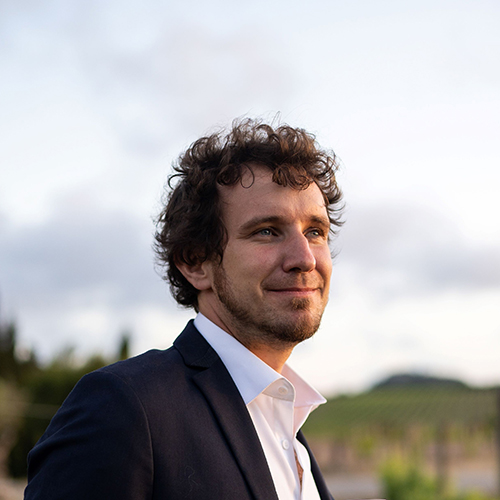
Guillaume Barraud is the Director of Châteaux et Domaines Gérard Bertrand. Agricultural Engineer and Oenologist, by conviction he made the choice very early to dedicate his career to environment-friendly and organic agriculture.
His first collaboration with the teams of Gérard Bertrand starts in 2015, as a consultant for the Institut Coopératif du Vin. He then joins Gérard Bertrand in 2018 to pursue the development of organic and biodynamic techniques, and manage all the activities in the cellars and in the vineyards.
Guillaume Barraud contributes to the development of a rare expertise, shared with around a hundred of co-workers, placing Gérard Bertrand and his teams as a reference in the wine world. Gérard Bertrand has currently more than 17 wineries cultivated following biodynamic principles, and more than 900 hectares that are certified Demeter or about to be.
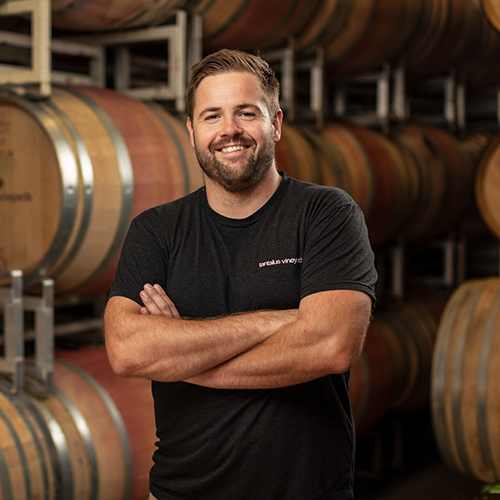
As Tantalus' General Manager and Winemaker, David Paterson brings a unique blend of Kiwi roots and Canadian ties to the world of winemaking. Born in Vancouver but raised in New Zealand, he earned his winemaking degree from Lincoln University in Christchurch, NZ. After gaining hands-on experience at Neudorf Vineyards in the local NZ industry, David embarked on a global wine journey, refining his craft at renowned wineries.
Throughout his international travel, David had the privilege of learning from esteemed mentors, including Anna Matzinger at Oregon's Archery Summit, Blair Pethel at Burgundy's Domaine Dublère, and Stephen Henschke and Paul Hampton at South Australia’s Henschke Cellars.
With a wealth of knowledge accumulated from these diverse experiences, David joined Tantalus in 2009, stepping into the role of winemaker. His tenure saw multiple successful vintages, leading to his expansion of responsibilities to include the position of General Manager in 2016.
Marc Picón was born in 1981 in Vilafranca del Penedès, a small village close to Barcelona in Spain. Since he was a child, he has been surrounded by the grapes and wine atmosphere. His mother, Lidia, was one of the first women winemakers in the region and transmitted all her knowledge and passion to her son.
After obtaining his degree in Economics at the Polytechnic University of Catalonia, he met a marketing wine Guru, called Michel Bourqui, who offered Marc the possibility of being part of a really special master degree; the OIV master degree in wine management. Marc travelled for 18 months around the world, just to visit the best wine regions on the earth. In total- 23 countries and more than 500 wineries.
After 15 days in Champagne, Marc decided to come back home for a week. It was during this week that he met the family Sumarroca. That day Marc invited his father for lunch, and he chose a Sumarroca Cava Nuria Claverol, one of the most interesting wines produced by Sumarroca. He was really impressed with the quality and style, and he started to talk about it. Just behind, one of the members of the family was listening to the comments Marc was saying about the wine. After some minutes, introduced himself as one of the owners and invited him to visit the winery. Eleven years later he still working at Sumarroca as the export manager.
Working Collectively

Pierre Naviaux is Director of the Sustainability Department of the Comité Champagne, which is the organization in charge of defending the collective interests of all Champagne wine makers and vineyards.
The Comité Champagne leads a sustainability management plan for the Champagny industry: 16,000 vine growers, 140 cooperatives and 400 Champagne houses (merchants). The objective of this plan is to invite all of these organizations towards a process of continuous improvement thanks to collective actions, experimentations, decision-making tools, sharing of good practices, technical and financial support, and the implementation of environmental certifications.
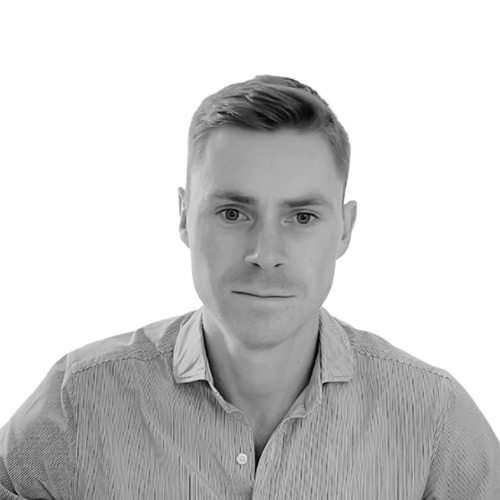
Having studied for a master's degree in international sustainability management in Berlin and Paris, Tom was part of the founding committee which led to the formation of the Sustainable Wine Roundtable (SWR) and he has since managed all aspects of the organisation's growth.
The SWR is a global platform for collaboration to advance sustainability across the wine industry. The only independent non-profit multi-stakeholder roundtable with over a hundred members to include the whole wine value chain. The SWR catalyses and drives collective action and knowledge sharing. Working together, the SWR is developing practical tools which include a Global Reference Framework for sustainable wine. The SWR is also working with members across the wine industry to take action in areas such as vineyard chemistry, labour standards, packaging, bottle weight and low-carbon logistics.
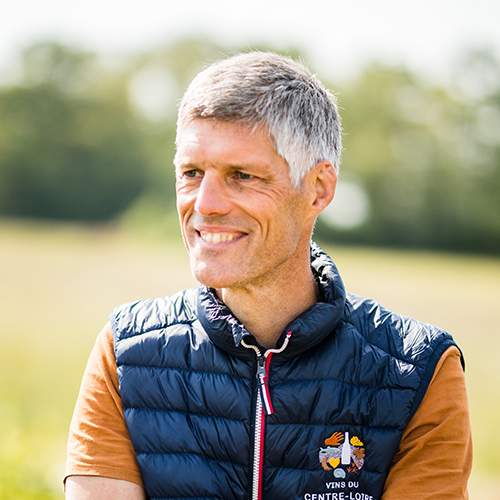
François Dal is an agronomist passionate about vines and wine. He is the author, with his colleagues at SICAVAC, of a pruning guide allowing professionals in the sector to share good pruning practices and curative techniques to fight wood diseases.
Since 2002, François Dal has been carrying out extensive work on wood diseases and vine management techniques to limit or even stop the spread of wood diseases. This work is extremely valuable for the viticulture in France and internationally.
He carries out pruning training courses throughout France as well as in other countries in order to communicate and share the fruit of his work.
A third edition of the pruning guide was published in 2022, allowing many explanations to be refined, particularly those concerning the growth of young vines.
